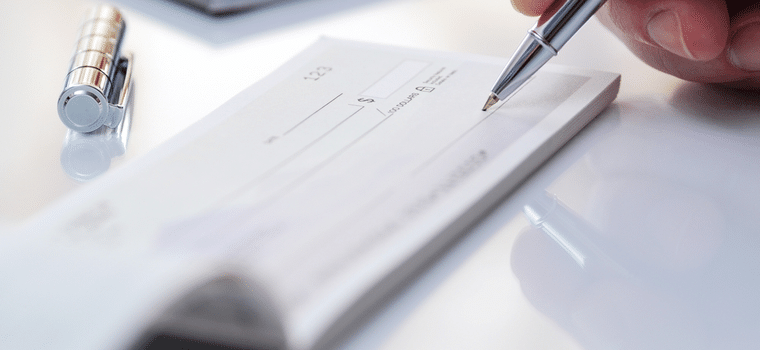It’s perfectly logical to open a new account when you find a better deal at a competitor bank. You might also need to open a new account if you move to a new city where your current bank doesn’t do business. Generally, you can close your bank account whenever you want. But before you act, think about whether your account is healthy and without issue. Make sure your account doesn’t have any blemishes that might reflect in your banking history.
Does Personal Banking Activity Impact Your Credit Scores?
Your bank account activity doesn’t appear in your credit history, so it won’t impact your credit score under normal circumstances. Only your borrowing activity, seriously past-due credit accounts and public records entries like judgments impact your credit score. Your banking activity won’t appear on your credit report even if you have a lot of money saved up and transact daily. But, your bank account does need to be in good standing to stay off your credit history.
If you’re wondering whether your banking debit card with a Visa or MasterCard logo impacts your credit score, the answer is also no. Debit card transactions aren’t paid with borrowed funds, but with money that’s already been deposited in your account. This means that while personal banking does not impact your credit report, it does have an impact on other reporting agencies, specifically ChexSystems.
Bank Accounts Listed in ChexSystems
Like credit card companies or other lenders, banks want to know if you make a good customer or prove a potential risk. Lenders rely on Equifax, Experian, and TransUnion to gauge your creditworthiness. To track banking history, banks often use a database called ChexSystems. The types of information banks report to ChexSystems about a consumer includes:
- Bank account and ATM card abuse
- Excessive overdrafts
- Unpaid negative balances
- Fraud such as identity theft
- Excessive bank account applications
- Involuntary closures based on delinquent behavior
You might have a negative report in ChexSystems if you have issues with your bank account and haven’t handled them in a timely manner. ChexSystems infractions stay on your banking history for five years.
Before closing your account, request a report from ChexSystems if you’re unsure about your banking history. Review your report for any errors and use the company’s dispute resolution options — online, phone, mail or fax — to have any errors removed.
Pay off your debts and ask ChexSystems to update your report. Once ChexSystems updates your report, you’ll be able to start over with a new account.
Overdraft Protection and Your Credit Report
When opening a checking account, some banks may offer you overdraft protection.
Overdraft protection helps you avoid hassles like:
- Declined debit card transactions
- Bounced checks
- Late bill payments
While overdraft protection is simply a way for banks to protect you from bouncing a check, the manner in which the bank provides that protection can vary between institutions. Some banks, for example, will market overdraft protection in the form of a line of credit. Just like any line of credit, the money is available when you need it, but spending it can carry some risks and penalties.
Before taking advantage of overdraft protection, ask customer service at your bank to explain details about how the account should be used. Also, find out whether the bank reports overdraft protection accounts to the credit bureaus.
Aim to control your overdraft protection usage just like you do with your other credit cards. This is because your bank will report any overuse or repayment issues to the credit bureaus or ChexSystems, or both. When you close your bank account, confirm that your overdraft protection line of credit is paid in full.
Simple Steps to Closing Your Bank Account
Closing your current bank account begins with opening a new one, or having another checking account you will transfer to from your current bank account. A seamless transition to your new account ensures that you maintain a good ChexSystems history. Once your new account is open, follow these steps to close down your old account.
- Transfer funds to your new account. Having funds in your new account ensures you can pay your loans and credit cards before the due date, a requirement to keep your credit scores high. Once funds are transferred to your new account, you can conduct daily transactions without worrying about overdrafts.
- Update your direct deposit information with your employer. Make sure your employer has all your new bank account details and that your next paycheck deposits in your new account, before eliminating your old one.
- Update recurring and automatic payments. Some of your recurring and automatic payments may report to the credit bureaus. To avoid hiccups, login to your accounts and change your banking information for a seamless transition.
- Ask for confirmation of account closure in writing. The confirmation gives you peace of mind that the account is closed, which is important if the account has a line of credit attached to it.
Closing Your Account Doesn’t Affect Credit
Closing your bank account isn’t going to have an impact on your credit. However, closing your bank account without taking care of other accessory issues, like paying off overdraft protection fees, may have such an impact. And, there are other databases out there, like ChexSystems, that have an effect on your banking if not your credit.
Your best bet is to develop good banking habits so that if you need to close an account, all the extra issues that could have an effect simply won’t.




